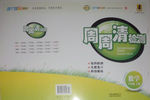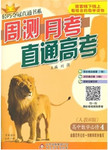题目内容
Construction workers usually get ______ by the day.
A.pay B.paying C.paid D.to pay
C

练习册系列答案
 周周清检测系列答案
周周清检测系列答案 轻巧夺冠周测月考直通高考系列答案
轻巧夺冠周测月考直通高考系列答案
相关题目
We tried ______ to persuade him to stay home, but at last, he went to the construction site despite his bad illness.
|
A.in case |
B.in vain |
C.in fact |
D.in addition |
